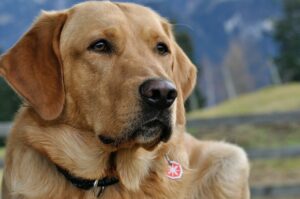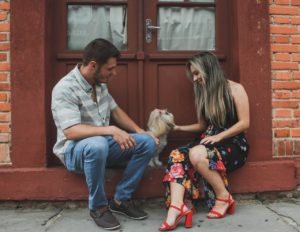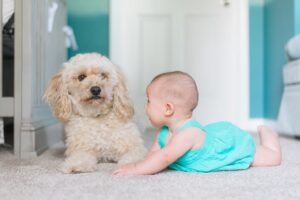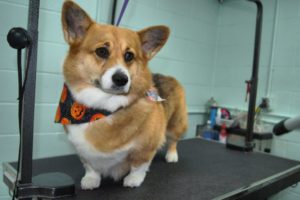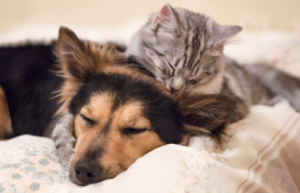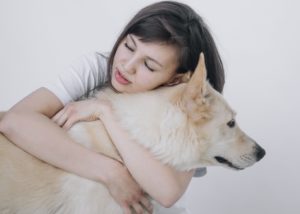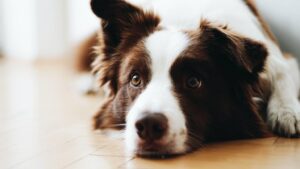Dogs make great pets and companions for people of all ages, and age shouldn’t be a disqualifying factor in getting a dog. However, not all dogs are suitable for everyone. There are some dog breeds that are just better for elderly people. Some breeds have a particular balance of energy needs and temperament which make them much better suited. The best dog breeds for seniors and older people are those breeds that have the qualities that make them a perfect match.
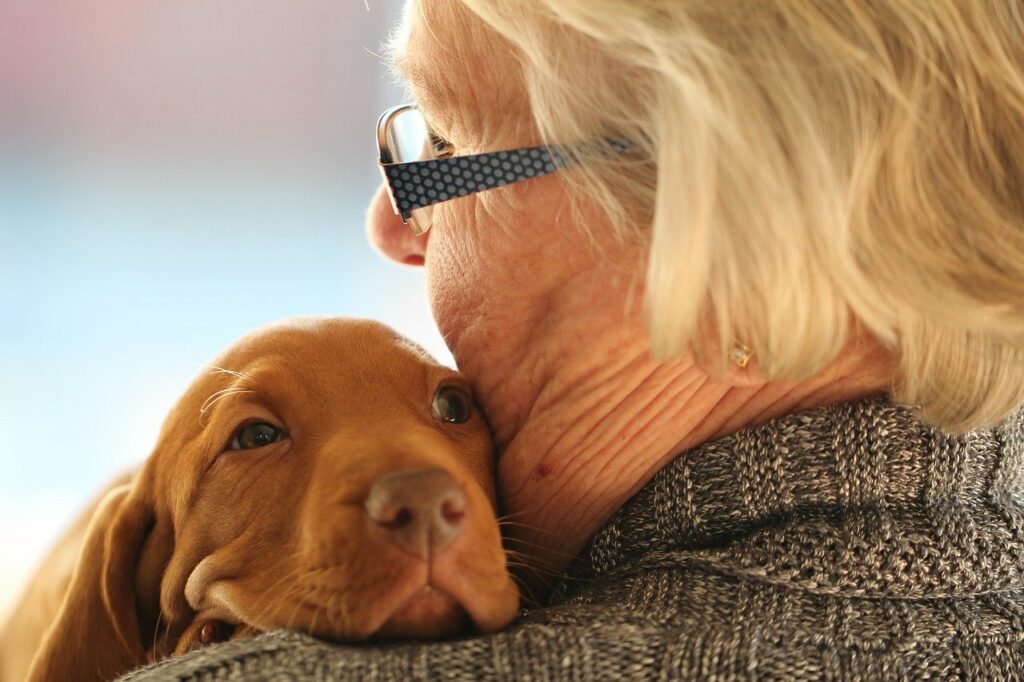
When deciding which dog breed to get, you have a lot of things to consider. There is their size, the amount of exercise they need, and even their temperament. When you’re getting a pure breed dog, you’ll be able to answer a few of these questions before you meet the dog. Some breeds have certain traits, which can make them predictable. This can make it much simpler to predict how the dog is going to behave in the long run. You’ll also have a good idea of their energy levels, and if that breed has any health problems that they’re particularly vulnerable to. When you look at all of these factors, you can narrow things down and just look at breeds that are the best for seniors.
What to Look for in a Dog Breed for Seniors?
Some dog breeds are generally well suited for seniors. To choose the best dog breed for a senior, there are some specific qualities you need to look . These are the more important aspects to think about:
- Exercise and Energy needs – Some dogs have substantially higher energy needs than others. This is why some people think they can’t give a dog the exercise that they need, because a lot of dogs need loads of exercise. There are plenty of dogs out there who do fine with a less active lifestyle though. These are better candidates for seniors.
- Age – Older dogs do often fare better with elderly owners than younger dogs. Regardless of activity levels, puppies can be more playful than their fully grown equivalent. An older dog is already house trained and tends to have calmer temperament, so this can make them a better match.
- Size – Dogs come in all shapes and sizes. An elderly person might need a smaller dog that won’t be able to physically overwhelm them. A large dog can be a lot for an older person to handle. If you prefer larger dogs, then there are still larger breeds that don’t weigh as much. This makes them easier to handle.
- Grooming and Health – A dog’s grooming or health requirements can make them a bit difficult for an elderly person to handle. Think about if these needs are going to be overwhelming in terms of time and money.
- Temperament – A calm dog is probably going to be better for most people in this age group. A lot of breeds are disposed to have a calm and loving temperament which makes them great pets.
Those are the main factors you’ll need to think about when choosing the right dog breed for a senior.
The Best Dog Breeds for Seniors
Poodles
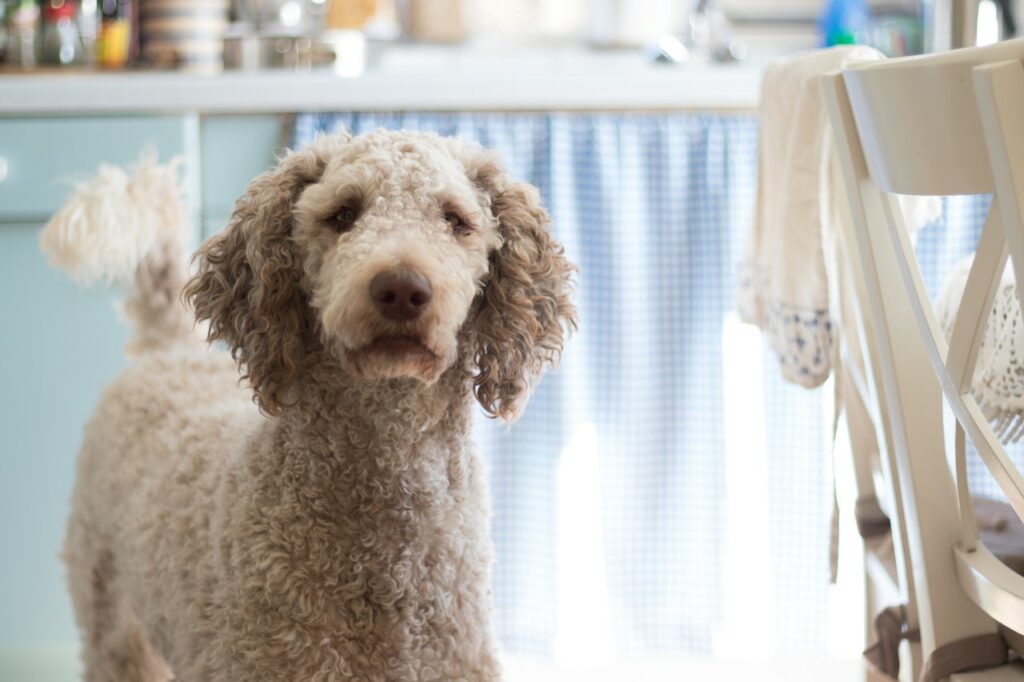
Poodles are a dog breed that get along very well with elderly people. They’re known for being very intelligent and have a great capacity for training. They’re one of the smarter dog breeds overall. This can make them a very rewarding companion, a dog that can be loving but intelligent enough to get along with someone older.
In terms of energy, a poodle does need a daily walk. However, one walk a day still puts them on the lower end for energy requirements. Their grooming is on the higher end though, so you will need to be aware of that.
Cavalier King Charles Spaniel
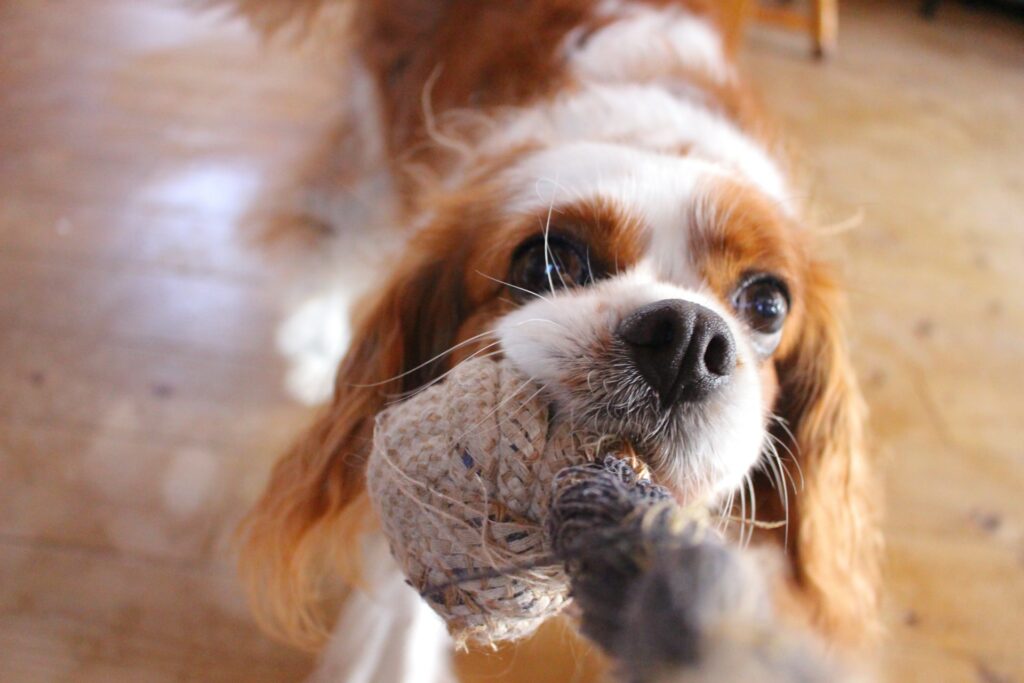
Cavaliers make great pets for elderly people because of their friendly loving nature. These dogs are friendly to a fault, and will be a warm companion for an older person. They can be a bit excitable, especially when young. However, they are also intelligent enough to be trained.
Cavaliers do have some health problems later in life that the owner should be aware of. However, they are small dogs that don’t need a ton of exercise. One thing to watch out for is that they can be a bit lacking in street smarts! These dogs love to chase and play, and often won’t learn about the dangers of chasing into a road. You’ll need to be vigilant and ensure they’re not able to escape a garden to keep them safe, as they often forget their surroundings when playing.
Maltese
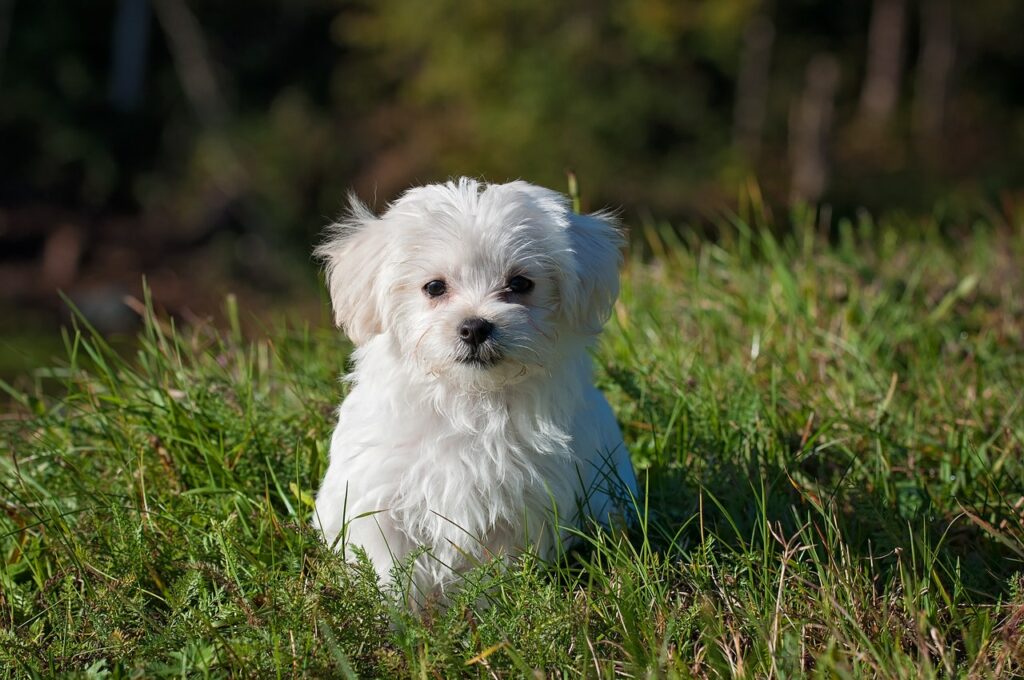
A Maltese is another lap dog that will suit elderly people great. They have a long life expectancy and can be a great companion. They’re affectionate and quite smart. These dogs are great for cuddling and only need a small bit of grooming. They can be prone to health issues though.
A Maltese is a great dog for an older person because of their calmer temperament. They’re even one of the dog breeds with hair that doesn’t irritate allergies! There are some drawbacks, like their mild exercise needs. Otherwise though, a Maltese or a Maltese cross is a great choice as a dog breed for seniors.
Greyhound
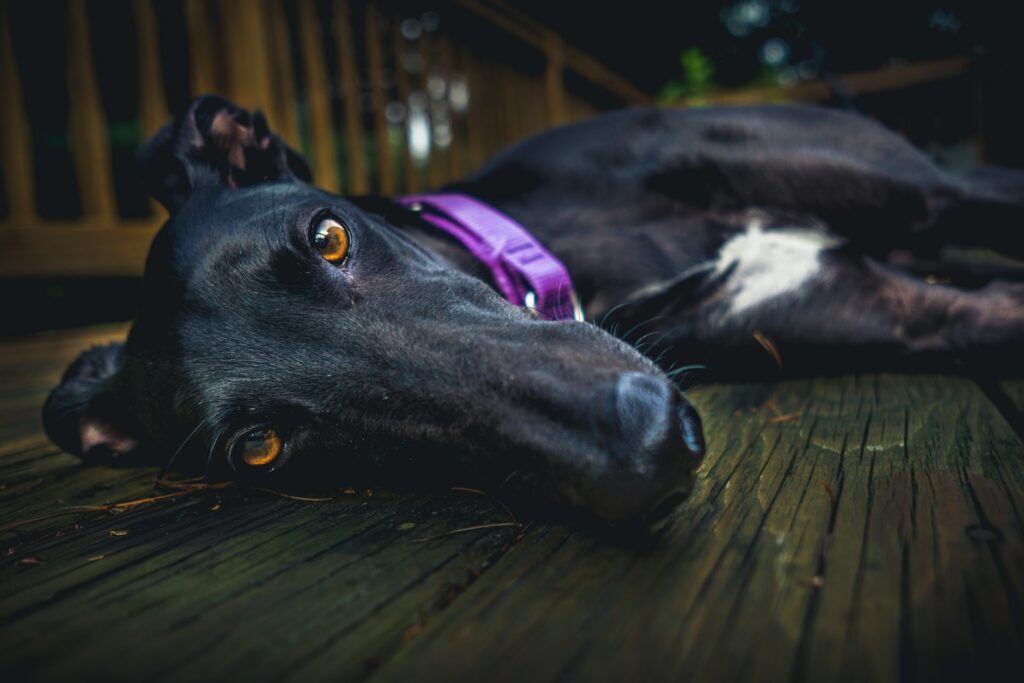
A greyhound might sound like a strange choice for the best dogs for elderly people! After all, these are racing dogs known for their speed. However, Greyhounds are sprinters, not distance runners! In a home, they’re well known to be big couch potatoes. A greyhound doesn’t have the exercise needs you might assume, getting by with just a decent walk a day.
These dogs respond very well to training, which makes them a good companion for an older person who is willing to spend a bit of time with them. They are larger, but don’t weigh very much which should make them easier to handle. If you like bigger dogs but don’t think you can cope with some breeds anymore, then a greyhound is a great choice for you.
Corgi
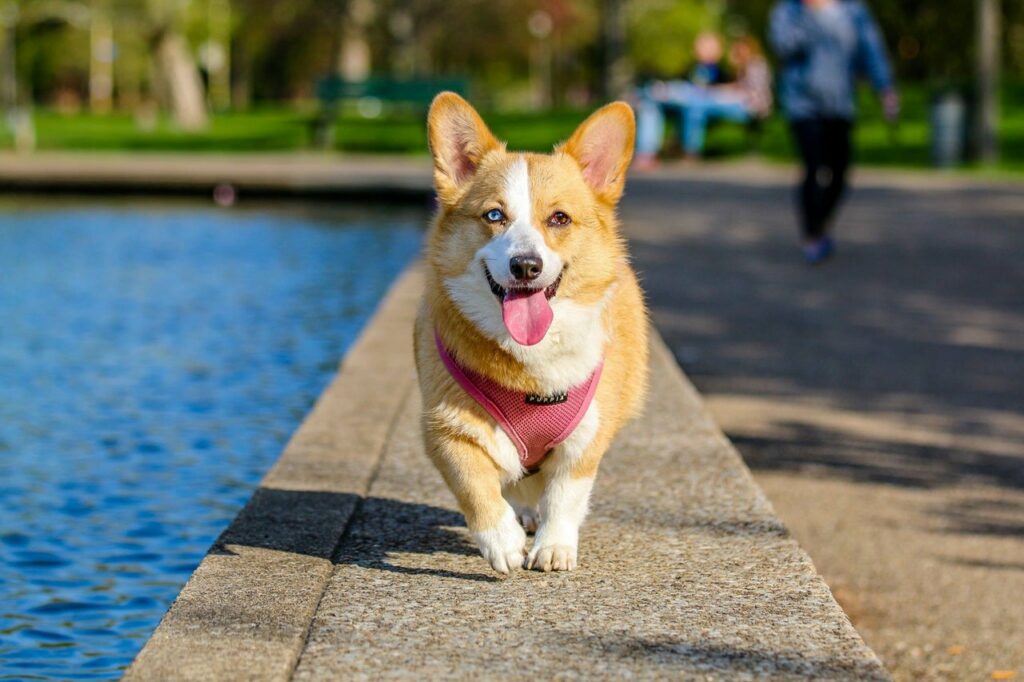
Corgis are small with a friendly personality, so they’re pretty easy for elderly people to handle. These dogs might be small, but they’re smart and quite simple to train. These dogs do like to be vigorous on their walks, being a herding dog by nature. However, they’re still happy with a daily walk if they like to be quite active during it.
Corgis don’t have too many requirements for grooming or health concerns. So these dogs are low-maintenance, along with being friendly.
Yorkshire Terriers
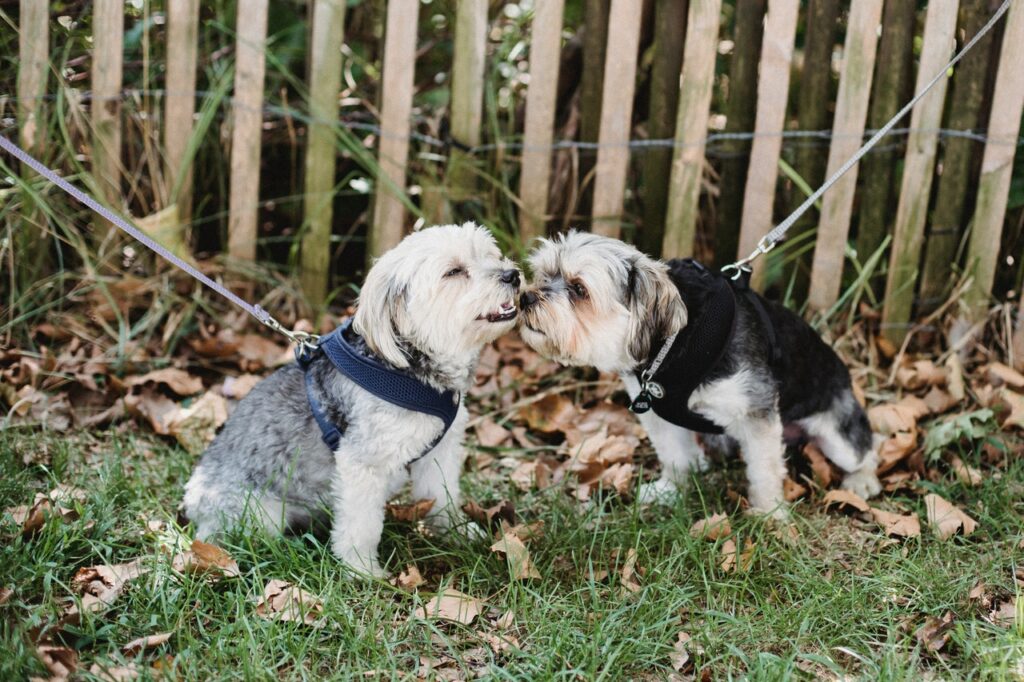
A Yorkshire terrier is the quintessential lap dog. These pets are affectionate and bond very well with human owners. They don’t need very much exercise and become quickly attached, making them great companions.
The main downside of a yorkie is they’re pretty stubborn in temperament. You might need some extra patience when trying to train them, as they can be difficult at times. They bond with their owners, and often get too protective! This can cause some barking and jumpy behaviour at strangers too. So while they’re on the easier side for things like health and exercise, they’re a dog breed that does require some extra care to help them settle into a new home.
Adopting a Dog From A Shelter
Older dogs do tend to make great pets for older people, so adopting a dog from a shelter can be a great way to get one. This way you can skip the troublesome puppy period, and help a dog that needs a second chance after their first home. elderly people are often more stable in their living conditions too, which can make them a great home for a dog that’s had a bad experience in the past.
The same things to consider in terms of general breed still apply with shelter dogs. So you’ll need to make sure you’re still choosing a breed that goes well with elderly people and meets all of your requirements for exercise or care. However, most dog shelters do have quite a lot of different dogs in there. It shouldn’t be too hard to find one that suits your needs.
Shelter dogs can come with some extra care needs, so this is something you’ll need to consider. Talk to the staff at the shelter and make sure you’re aware of any extra things the dog might need. They can come from bad backgrounds which can give them extra concerns like anxiety problems that you’ll have to make sure you can deal with.
Which Dog Breeds are Best for Seniors?
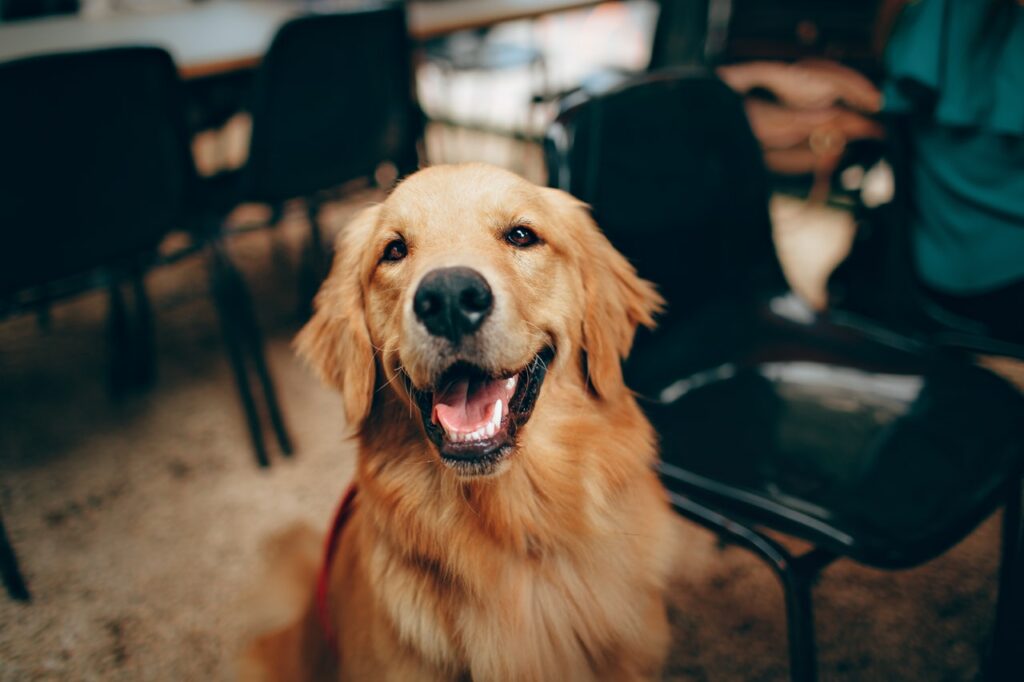
Those are some of the best dog breeds for elderly people, those that meet all of the requirements for a great friend for someone older. Out of those, there is one that suits most types of dog owners. Between big dogs and lap dogs, there are loads with the right temperament for a senior.
However, the breed isn’t everything. This is even more so if you’re adopting an older dog, when you already have a decent idea of what their personality and temperament is. Any calm dog that has energy needs that you can meet would be a great choice for a senior.

